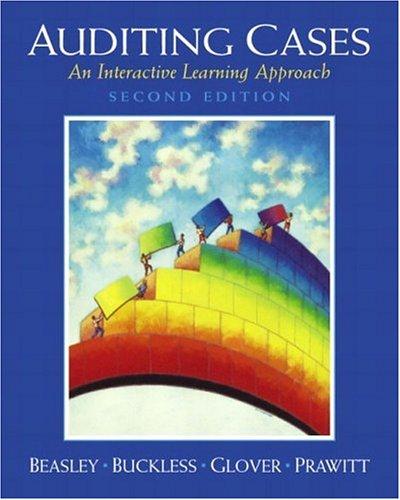Question
An agency'smanager can put high,medium,or low effort into cost-minimization. High effort will limit the agency's operating costs to$100,000.However,high effort costs the manager the equivalent of$20,000.
An agency'smanager can put high,medium,or low effort into cost-minimization.
High effort will limit the agency's operating costs to$100,000.However,high effort costs the manager the equivalent of$20,000.
Low effort will increase the agency's operating costs up to$200,000.However,low effort costs the manager nothing.
Mediumeffort leaves the agency's operating cost uncertain.There is an 80% chance that the manager will be "lucky" and agency costs will only be $100,000.But there is a 20% chancethat the manager will be "unlucky" and agency costs will rise to $200,000.Medium effort costs the manager the equivalent of $10,000.
Q1: What is the total cost (the sum of the agency's operating cost and the manager's effort cost) if the manager exerts high effort?
Q2: What is the total cost(the sum of the agency's operating cost and the manager's effort cost)if the manager exerts low effort?
Q3: What is the total expected cost(the sum of the agency's expected operating cost and the manager's effort cost)if the manager exerts medium effort?
Q4: What is the economically efficient effort level?
a. High effort
b. Low effort
c. Medium effort
The manager rationally chooses low effort if paid a base salary that is independent of performance.In that case,the agency's operating costs are$200,000and the manager pays no effort cost,so total costs are $200,000. A bonus tied to operating costscouldincentivizethemanager to choose the efficient outcome, while reducing the agency's operating costs (including any bonus payments).But the bonus has to be well-designed in order to be mutually beneficial for both the manager and agency. Suppose that the manager is offereda$45,000bonus if operating costs are low.High effort, with an effort cost of $20,000, guarantees that operating costs will be low and that the bonus is received.Medium effort, with an effort cost of $10,000, has an 80% chance of yielding low operating costs and therefore an 80% chance that the bonus is received.Low effort, with an effort cost of $0, has no chance of yielding low operating costs and therefore no chance that the bonus is received.
Q5: What is the manager's gain (bonus minus effort cost) from high effort?
Q6: What is the manager's expected gain (expected bonus minus effort cost) from medium effort?
Q7: What effort level does the manager choose if offered a $45,000bonus?
a.) High effort
b.) Medium effort
Q8: What are theagency's costs,inclusive of any expected bonus payments,if it offers a $45,000 bonus for low operational costs?
Suppose that the manager is instead offereda$55,000bonus if operating costs are low.High effort, with an effort cost of $20,000, guarantees that operating costs will be low and that the bonus is received.Medium effort, with an effort cost of $10,000, has an 80% chance of yielding low operating costs and therefore an 80% chance that the bonus is received.Low effort, with an effort cost of $0, has no chance of yielding low operating costs and therefore no chance that the bonus is received.
Q9: What is the manager's gain (bonus minus effort cost) from high effort?
Q10: What is the manager's expected gain (expected bonus minus effort cost) from medium effort if offered a $55,000bonus for low operating costs?
Q11: What effort level does the manager choose if offered a $55,000bonus?
a. High effort
b. Medium effort
Q12: What are theagency's costs,inclusive of any expected bonus payments,if it offers a $55,000 bonus for low operational costs?
Step by Step Solution
There are 3 Steps involved in it
Step: 1

Get Instant Access to Expert-Tailored Solutions
See step-by-step solutions with expert insights and AI powered tools for academic success
Step: 2

Step: 3

Ace Your Homework with AI
Get the answers you need in no time with our AI-driven, step-by-step assistance
Get Started


